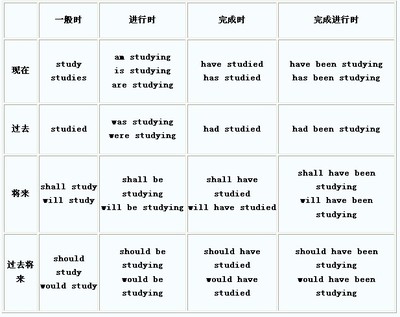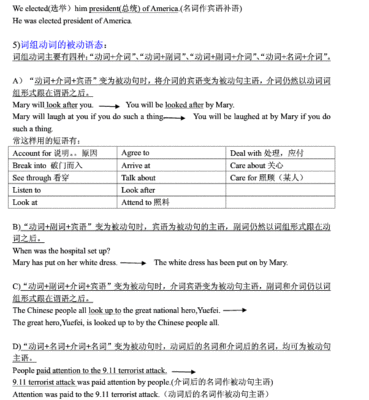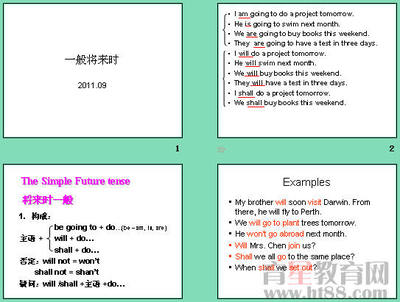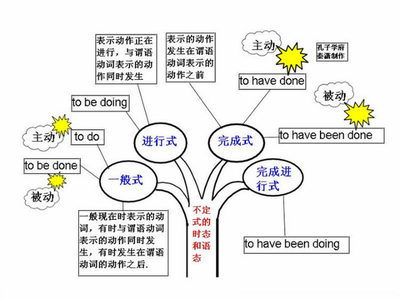一. 一般将来时态:
1.定义:一般将来时态用来表示将要发生的动作或存在的状态。可以表示自然规律,也可以表示对将来事情的一种主观推测。如:
I’ll be thirty tomorrow.(明天我就30岁了。)
They will go to the park next week.(下周他们打算去公园)
2.一般将来时态常常和表示将来的时间状语连用,它们是: 1)以this引导的短语:this evening(今晚) this afternoon(今天下午) thisweek(这周) this year(今年) this month (这个月)
2)以next 引导的短语:next week(下周)next year (明年) next month(下个月)
3)此外,还有:tomorrow(明天) tomorrowmorning(明天早上) on Sunday (在周日)the day aftertomorrow(后天) in the future(在将来)
4)例句:It will rain tonight.(今晚将会有雨)
Lily is going to go home this evening.(今晚丽丽将要回家。)
I shall go home next month.(下个月我要回家。)
3.构成:一般将来时态有三种构成方式:
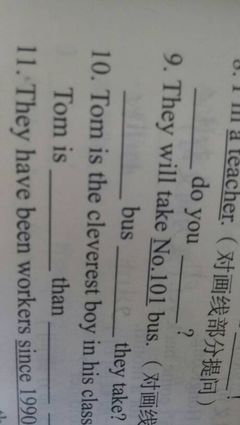
1)Shall +动词原形(shall只能和第一人称单数I和第一人称复数we连用):
如: I shall do my homework.(我要做作业。)
We shall study English.(我们要学习英语。)
含有shall的一般疑问句,表示询问对方的意图或愿望。回答shall I ….?问句时不能使用答语:Yes, I shall. 或者:No, I shall not.可以回答为:Yes, please.(好的,请) No, thanks. (不,谢谢。)Yes,Let’s.(是的,让我们…)
如: Shall we go to the park?(我们去公园好吗?)
Yes, Let’s go.(好的,让我们走吧。)
2)Will+动词原形(will可以用于任何人称)
如: I will go home tomorrow.(我打算明天回家。)
3)Be going to+动词原形(一般表示计划或者根据某些现象预测不久即将发生的事情)
如: She is going to go home tomorrow.(她打算明天回家。)
We are going to have a party tomorrow.(明天我们要开个晚会。)
4)有时也可以用现在进行时态表示将来的动作,一般表示计划或者双方约定好的动作。
如:I’m coming by bus tomorrow.(明天我打算做公共汽车来。)
My mother is coming.(妈妈就要来了。)
5) 注:如果原来使用包含有am、 is、 are的一般现在时态的句子,在变成一般将来时态时,要在助动词shall、will、 be going to 的后面使用动词原形be.
如:I shall be here nextyear.(明年我将会在这里)
We will be at schooltomorrow.(我们明天将会在学校.)
They are going to be good friends in thefuture.(他们将来会成为好朋友。)
6) 缩写: I will--- I’ll I am going to---I’m going to he is—he’s we are --- we’re
 爱华网
爱华网
